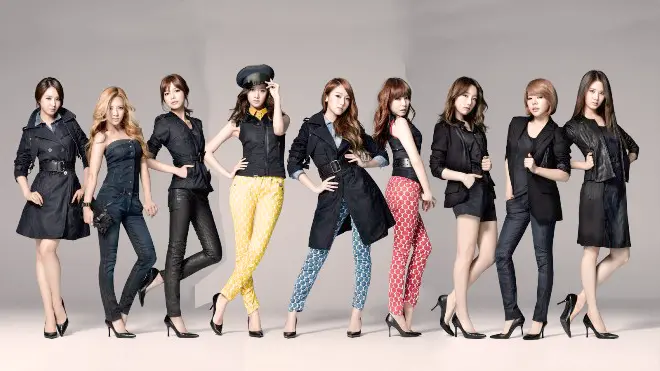
Exploring the Rise of Sustainable Fashion in South Korea
- Admin
In recent years, the global fashion industry has undergone a profound shift towards sustainability, driven by growing consumer awareness and environmental concerns. South Korea, known for its fast-paced and trend-driven fashion scene, has emerged as a surprising champion of sustainability, spearheading innovative initiatives to minimize the industry's ecological footprint. Let's delve into the burgeoning movement of sustainable fashion in South Korea and uncover the factors driving its growth.
1. Eco-conscious Consumerism: Shifting Priorities
South Korean consumers, particularly the younger generation, are increasingly prioritizing sustainability when making purchasing decisions. Concerns about environmental degradation, climate change, and ethical labor practices have prompted a reevaluation of consumption patterns, leading to a surge in demand for eco-friendly and ethically produced clothing. This shift in consumer behavior has compelled fashion brands to adopt more sustainable practices to remain relevant in the market.
2. Green Innovation: From Fabric to Factory
Korean fashion brands are embracing innovation to minimize their environmental impact at every stage of the production process. From sourcing eco-friendly materials such as organic cotton, bamboo, and recycled polyester to implementing water-saving techniques and reducing carbon emissions in manufacturing facilities, these initiatives are transforming the industry's supply chain. Furthermore, advancements in technology, such as 3D printing and digital design, are enabling designers to create garments with minimal waste and maximum efficiency.
3. Circular Economy: Rethinking Consumption
The concept of a circular economy, which emphasizes the reuse, recycling, and regeneration of resources, is gaining traction in South Korea's fashion industry. Brands are exploring innovative business models such as clothing rental services, upcycling workshops, and resale platforms to extend the lifespan of garments and minimize textile waste. Additionally, collaborations between fashion brands and environmental organizations are raising awareness about sustainable consumption practices and encouraging consumers to make more conscious choices.
4. Government Support: Policy Initiatives
The South Korean government has taken proactive measures to promote sustainability in the fashion industry through policy initiatives and incentives. The Ministry of Environment has launched campaigns to raise awareness about eco-friendly fashion and provide financial support to businesses that adopt sustainable practices. Moreover, regulatory frameworks are being developed to ensure greater transparency and accountability in supply chains, thereby fostering a more sustainable and ethical fashion ecosystem.
5. Cultural Influence: The Power of K-Beauty and K-Fashion
South Korea's cultural exports, particularly its beauty and fashion industries, wield significant influence on a global scale. The popularity of K-beauty products has paved the way for greater awareness of Korean brands and aesthetics in the fashion world. As consumers become more attuned to Korean cultural trends, there is an opportunity to leverage this influence to promote sustainable fashion practices and amplify the message of environmental stewardship.
In conclusion, the rise of sustainable fashion in South Korea reflects a growing awareness of the need for responsible consumption and production in the fashion industry. With eco-conscious consumerism driving demand for ethically produced clothing and innovative solutions emerging to address environmental challenges, South Korea is poised to become a leader in sustainable fashion innovation. As the movement continues to gain momentum, it holds the promise of a more sustainable and equitable future for the global fashion industry.
In recent years, the global fashion industry has undergone a profound shift towards sustainability, driven by growing consumer awareness and environmental concerns. South Korea, known for its fast-paced and trend-driven fashion scene, has emerged as a surprising champion of sustainability, spearheading innovative initiatives to minimize the industry's ecological footprint. Let's delve into the burgeoning movement of sustainable fashion in South Korea and uncover the factors driving its growth.
1. Eco-conscious Consumerism: Shifting Priorities
South Korean consumers, particularly the younger generation, are increasingly prioritizing sustainability when making purchasing decisions. Concerns about environmental degradation, climate change, and ethical labor practices have prompted a reevaluation of consumption patterns, leading to a surge in demand for eco-friendly and ethically produced clothing. This shift in consumer behavior has compelled fashion brands to adopt more sustainable practices to remain relevant in the market.
2. Green Innovation: From Fabric to Factory
Korean fashion brands are embracing innovation to minimize their environmental impact at every stage of the production process. From sourcing eco-friendly materials such as organic cotton, bamboo, and recycled polyester to implementing water-saving techniques and reducing carbon emissions in manufacturing facilities, these initiatives are transforming the industry's supply chain. Furthermore, advancements in technology, such as 3D printing and digital design, are enabling designers to create garments with minimal waste and maximum efficiency.
3. Circular Economy: Rethinking Consumption
The concept of a circular economy, which emphasizes the reuse, recycling, and regeneration of resources, is gaining traction in South Korea's fashion industry. Brands are exploring innovative business models such as clothing rental services, upcycling workshops, and resale platforms to extend the lifespan of garments and minimize textile waste. Additionally, collaborations between fashion brands and environmental organizations are raising awareness about sustainable consumption practices and encouraging consumers to make more conscious choices.
4. Government Support: Policy Initiatives
The South Korean government has taken proactive measures to promote sustainability in the fashion industry through policy initiatives and incentives. The Ministry of Environment has launched campaigns to raise awareness about eco-friendly fashion and provide financial support to businesses that adopt sustainable practices. Moreover, regulatory frameworks are being developed to ensure greater transparency and accountability in supply chains, thereby fostering a more sustainable and ethical fashion ecosystem.
5. Cultural Influence: The Power of K-Beauty and K-Fashion
South Korea's cultural exports, particularly its beauty and fashion industries, wield significant influence on a global scale. The popularity of K-beauty products has paved the way for greater awareness of Korean brands and aesthetics in the fashion world. As consumers become more attuned to Korean cultural trends, there is an opportunity to leverage this influence to promote sustainable fashion practices and amplify the message of environmental stewardship.
In conclusion, the rise of sustainable fashion in South Korea reflects a growing awareness of the need for responsible consumption and production in the fashion industry. With eco-conscious consumerism driving demand for ethically produced clothing and innovative solutions emerging to address environmental challenges, South Korea is poised to become a leader in sustainable fashion innovation. As the movement continues to gain momentum, it holds the promise of a more sustainable and equitable future for the global fashion industry.
